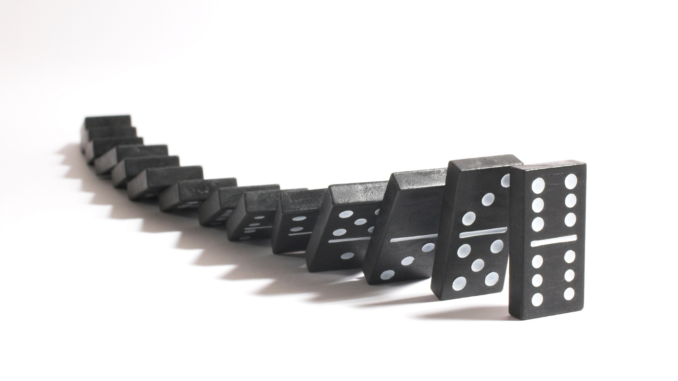
PROTECT paper 23 is published! “What do we mean, ‘tipping cascade’?”
Find here the main results:
1) Tipping elements such as the ice sheets on Greenland and Antarctica or shallow lakes interact on various spatial scales. These interactions may give rise to dynamics involving multiple critical transitions, often called tipping cascades or Domino Effects. Learn more here.
2) However, tipping cascades have been rather loosely described in recent literature. Based on a previously studied model of idealized interacting tipping elements we identify and characterize qualitatively different dynamic patterns of multiple tipping.

3) For example, a critical transition of one tipping element is not sufficient to directly lead to a critical transition of a following tipping element in a two phase cascade. A further change in the environmental boundary conditions is needed and hence a mitigation may be possible.

4) In contrast, a domino cascade may hardly be stopped once initiated: A critical transition of one tipping element triggers a following critical transition of another tipping element without a further change of the environmental boundary conditions.

5) In addition, we study the potential to anticipate tipping cascades by early warning signals such as autocorrelation and variance. The indicators may fail to indicate the following tipping in a domino cascade while they are sensitive for a two phase cascade up to a certain degree.
6) Our results are limited by the conceptual nature of the model. Nevertheless, the differences in the potential for mitigation and anticipation between the cascade types suggest to go beyond a loose description of tipping cascades.
7) Ongoing improvements of the representation of interacting tipping elements in complex climate models can help to gain further quantitative insights on how tipping cascades e.g. in the climate system may come about.
[AKK1]Fig1
[AKK2]Fig2
[AKK3]Fig3

Leave a Reply